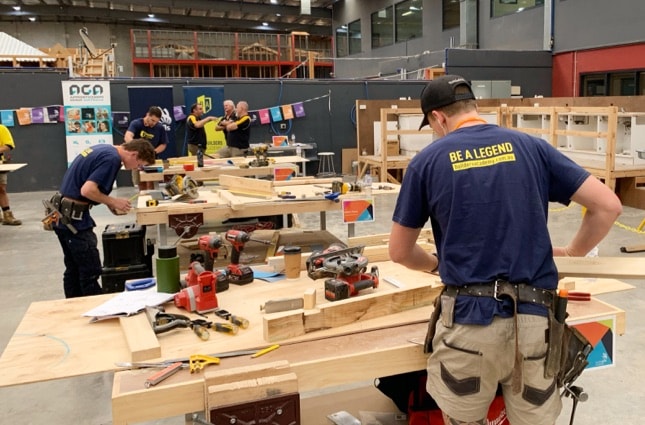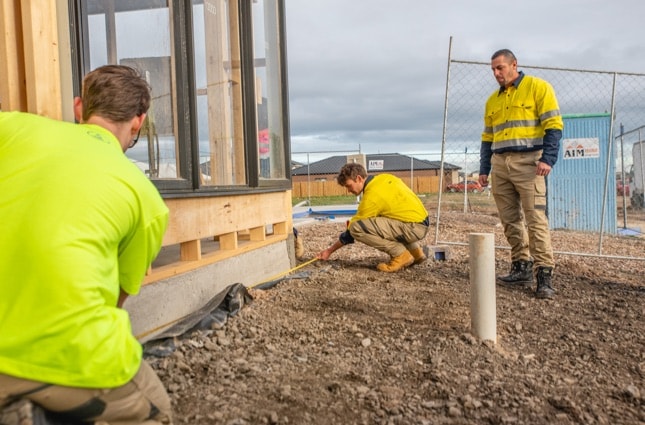Are you a current, stood down or aspiring apprentice? You’re probably a little confused about what’s happening to building apprenticeships now and after covid-19.
While a lot of businesses are struggling to make a go of it, apprenticeships are still important to our economy. Without apprentices now, we wouldn’t have skilled trades in the future!
Still, where does that leave us and what’s next for Australia’s apprentices?
Read on to get all your apprenticeship questions answered.
What is an apprenticeship?
In an apprenticeship, you get paid to study and work at the same time. You earn an income while you gain a qualification (usually a cert 3) and get real work experience in a business.

What are the benefits of doing an apprenticeship?
There are heaps of benefits to doing an apprenticeship. Here are just a few.
- Get a nationally accredited qualification
Your certificate will be recognised across the country so you can work anywhere you like!
- Get paid to study
Your employer pays for your certificate and for the time you spend in training. They give you a small wage on top.
- Avoid student debts
Avoid the typical expenses of paying for your certificate or having to take out loans. And if you do need to take out a loan for living expenses, it’ll be much less than an average HECS-HELP or FEE-HELP loan.
- Get hands-on experience
Learn from the pros who will pass down all their tricks of the trade. You’ll learn things they don’t teach you in books.
- Transition into employment
Employers don’t pay for your apprenticeship just to let you go afterwards! Once you’re qualified, you can stay with your employer and avoid looking for a new job.
How much can I earn?
Apprentices earn less than fully qualified trades. But you still have a minimum wage and all the other rights of a typical employee. You’ll also get paid holiday and sick leave, overtime and superannuation.
To work out how much you’d made in your apprenticeship, check out the Fair Work Ombudsman’s Pay and Conditions Tool.

Can you do an apprenticeship at 15?
Yes, at 15 you are of working age and can do an apprenticeship! The age limit for apprenticeship is 65.
Can you change employers during an apprenticeship?
Yes, but it can be a little tricky. You’ll need to get your original and new employers on board, complete and sign a transfer application form, and then lodge this paperwork with your state’s relevant authority.
In NSW, you’ll lodge with Training Service NSW. In Queensland, you’ll lodge with the Department of Employment, Small Business and Training.
You’ll also need to contact your Australian Apprenticeship Support Network (AASN) provider to let them know.
Remember: You’ll have a probation period of 90 days at the start of your contract. This is the time to work out if the employer is right for you and to change employers if you want to.
How long do building apprenticeships go for?
Most building apprenticeships, like carpentry, go for four years. Some go for three years.

Who pays for my apprenticeship?
Your employer will pay. There are two ways to do this:
- Your employer pays your RTO directly
- You pay your RTO, and your employer reimburses you
I’m an apprentice who has been stood down, what should I do?
Without training up apprentices, businesses will have skills shortages in the future. So while your employer may be struggling during the covid-19 crisis, they have a lot to gain by keeping you. Talk to your employer about the JobKeeper payment.
JobKeeper is a government wage subsidy of $1500 per fortnight that helps your employer keep you on their books. Basically, the government pays your apprentice wages, even if you have no work. You should be able to return to work when the crisis is over and business gets back to normal.
Your employer could also take advantage of the boost to wage subsidies. Instead of JobKeeper, they could use the Supporting Apprentices and Trainees incentive to get a $21,000 cash hand-out.
The future of building apprenticeships
Apprenticeships are essential because they will give us the skilled workers of the future. That’s why the government is investing so much money into apprenticeships, helping the economy recover from the covid-19 crisis.
Wage subsidies and JobKeeper payments are enabling employers to keep apprentices on the books. Meanwhile, strategies like JobMaker are going to make it easier for employers to train apprentices and to get funding.





